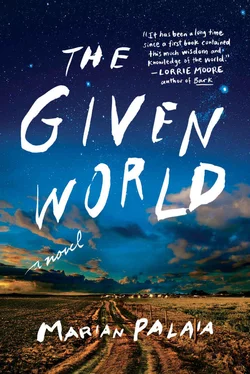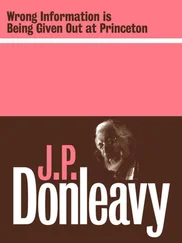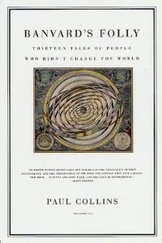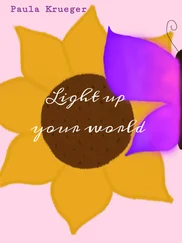And there was a lot of coke filtering into and around the city; a lot of the drivers, including Riley, were snorting it pretty regular. Frank tried it, but he didn’t really enjoy it, and the hangovers were awful, jump-off-a-bridge depressing. He got some from her a few times before he realized he was trying too hard to like it. She wasn’t dealing, just sharing with a select few. Seemed like she bought in bulk, so she always had extra. Not pillowcases full or Colombian cartel lots, but plenty. The thing was, she was making pretty good money, like everyone else, and the only person she had to support was herself. And the hours didn’t help. If you wanted to stay up days and pretend you were normal (after a fashion), it helped to have a little bump, and coffee wasn’t going to do it. Aside from the illegality of it, and the cost, it could seem like a really good idea — assuming you could handle the aftermath.
Except then it got to be more habit than play, and she thought it would be even better to try balancing one high out with another, like Jim Beam with beer backs, pills, and other kinds of powder, and pretty soon she wasn’t coming to work, or she was coming to work still high. They looked the other way for a while because she’d always done such a good job, but then one night some new supervisor, thinking he’s going to butter some butts downtown, yanks her off her district at four in the morning and sends her over to S.F. General for a drug test. Game over. Goddamn it.
It’s not the seventies anymore, and Eddie’s boyfriend Lucas is one of the first to die from a disease they haven’t even decided on a name for yet, and Riley’s no help at all because she’s living out at Haight and Stanyan in a tent (because they towed her car and she can’t come up with the scratch to bail it out, to move back into it) with a bunch of vets who can’t seem to get their shit together (imagine), and she’s their mascot.
• • •
Frank knew he wasn’t the only one who was a little in love with her, and he was pretty damn sure he had about zero chance of ever being able to do anything about it. He saw how natural it was for her to gravitate toward damaged, and he wasn’t nearly enough of that. Not that he wasn’t a little wrecked — it sort of came with the territory — but not sufficiently. He never asked her out on a real date, brought her flowers, nothing like that. But he kept an eye on her after she got fired and started living out in Golden Gate Park. He’d go pick her up and take her to breakfast, trade papers for bagels and bring them to her and her crew. Those ’Nam guys didn’t like him much — him with his truck, job, clean-cut clothes and combed hair — but she’d give them a sign, some tilt of the head or sly smile at the corner of her mouth, to let them know he didn’t mean any harm and that he wasn’t going to steal her.
But he did. Not because of them, but just because. Because he couldn’t leave her out there.
He knew this bar, the Wild West End. It was up in Bernal Heights, off the beaten track, and he’d go there sometimes when he didn’t feel like seeing anyone he was already too familiar with. They had a garden out back and it was a nice place to unwind, to watch a football game, shoot some pool. It was a girl bar, more or less, but they’d let anyone in, and no one bothered him so long as he wasn’t an asshole, which he wasn’t. He got to know one of the bartenders, and one day she told him they were having a tough time covering all the shifts; she didn’t want to work more than she was already working, and did he know anyone who was looking for a job — someone who could put up with a little crap.
He brought Riley in — spent some time talking her into it — and her interview consisted of smoking a joint with the owner and the owner’s sidekick, this queen named Andy, in the ladies’ room, and after that the job was hers. Pretty soon it was like she’d been born there. They took her in like an Easter chick and it looked like she never looked back, at least not at the part about getting up to go to work just when everyone else was leaving the bars. He knew she had to miss it, though: the independence, the sunrises from the top of Jackson Street, the kids, the ocean, the balling it down the grade toward the Golden Gate Bridge on a deadhead run, scaring the crap out of tourists in their lane-wandering Winnebagos.
So he started picking her up when her late shifts ended, to ride with him, to keep him company, and she’d fold the papers and throw her side of the street, and he’d take her to breakfast when the sun came up, and when she let him kiss her a few times, he thought they were both in love. But they weren’t. But he was. And what she offered him in return went like this:
“If I could fall in love I would. But I don’t know how.” Or, “I don’t trust myself. I’ve made too many bad decisions. But stay close.” He didn’t mind the “stay close” part, even if it could sound like she was playing him, but what it sounded like didn’t matter because he didn’t think she was that kind of girl — didn’t think she knew how to be that kind of girl — and staying close was what he wanted. So he tried.
But their versions of close, and of staying, were different. Frank hung in there, because Frank was good that way. Which, as it turned out, was probably the whole problem. She was barely keeping it together, and she told him — once only — that sometimes he made her feel bad. Just him, a not-fucked-up person. All right, then. He thought maybe someday it would change, and he’d be ready if it did. Ready like spaghetti. Ready like something.
She made enough money at the bar to get another flat, and the cops broke up the encampments at the park, but she still knew where to find those guys, down on Sixth Street or in the alleys, in their refrigerator boxes, or in an SRO for a night or two when the checks came first of the month. Andy, the swamper, had a second job cooking down at Harbor Lights, the only place in town a broke junkie (and weren’t they all that?) could go to detox without a seventy to eighty percent chance of dying from the jones. When Riley and Andy got to be friends, Riley would show up sometimes with one or two of her mates and Andy would feed them out the back door. Because they weren’t going in. No way. And she wasn’t about to try talking them into it, because she wasn’t going in either.
Dear Riley,
This is the part I hate most. All the times I’ve caught myself thinking if I never had him, or had given him up, then I would never have felt that awful pain of him going missing. And of you going missing after him. Sure, all that pain is still alive and well, but now — and it has taken me completely by surprise — it’s like something I can carry, and not something that’s constantly sitting on my chest. Crushing me. I want the same thing for you. I wonder what it is like to be you, now. I wish you would tell me. I have your last letter here. It’s two years old. You were delivering newspapers. You wanted to go to school. Now? I don’t know. It’s all just echo.
That other letter. What were the words they used? “Presumed dead.” Whoever thought that was something tolerable to say to a person should have their heads examined.
I went missing too, didn’t I? Your mom: MIA. And stayed missing for a long time, probably when you needed me most. Or maybe I just want to feel like you ever needed me. Like you ever needed anyone but your brother. But you did, and I was your mom.
Now that I have reached, or can at least imagine I see, the end of this ten-year-long dark tunnel (exactly what it feels like), it is time to admit (confess?) some things, and the first is I barely remember you leaving, sweet girl. There’s just the one glimpse. You with your little blue suitcase, standing on the bottom step of the bus. I can see the driver behind you, his hand out for your ticket, but you’ve turned back around toward me and the baby, and you have this funny look on your face. I tried to decipher that look then, and have been trying to ever since. Seems it was some combination of defiance (you were not going to cry), fear, wonder, relief. Gratitude. I know you, and I believe that about you, that you were grateful. You smiled. Just one of your quick sideways smiles, and god knows what it meant, but I held onto it. Slim was still so tiny, only a couple of months old. But he was getting healthy by then, so alive — tough as old boots, the doctor told us later. His lungs were working on their own, almost like nothing had ever been wrong, like they hadn’t been the size of sparrow wings when he was born, and about as much use for breathing. He didn’t cry much the few weeks we had him after you left, but he had a holler that would scare the squirrels out of the trees when he was really mad about something. He definitely took after you in that way. You were a very determined child.
Читать дальше












